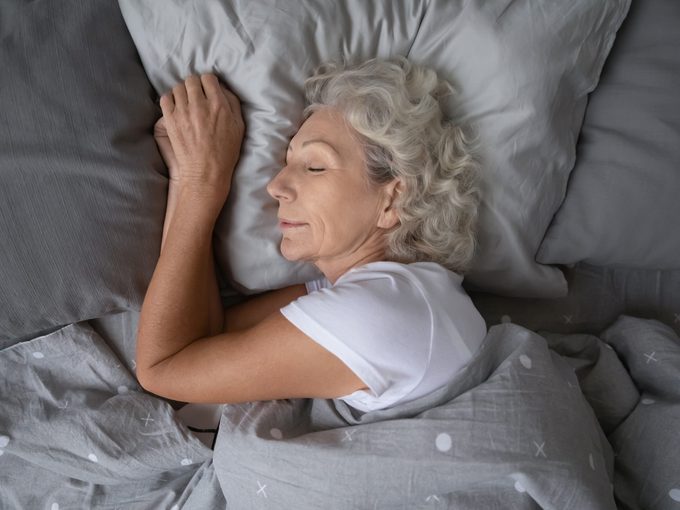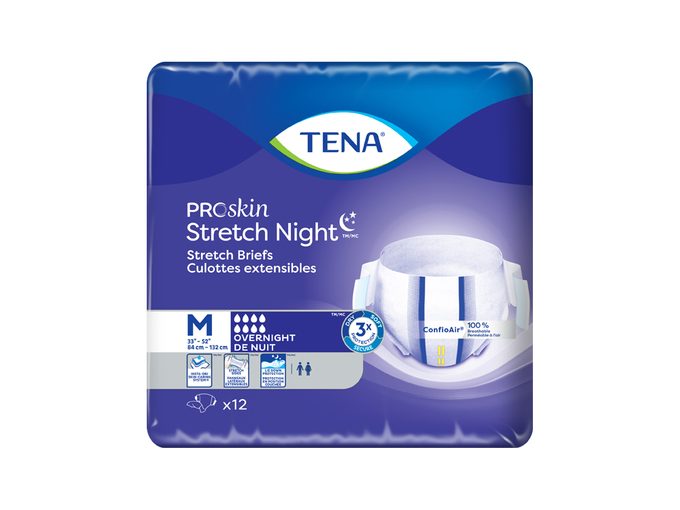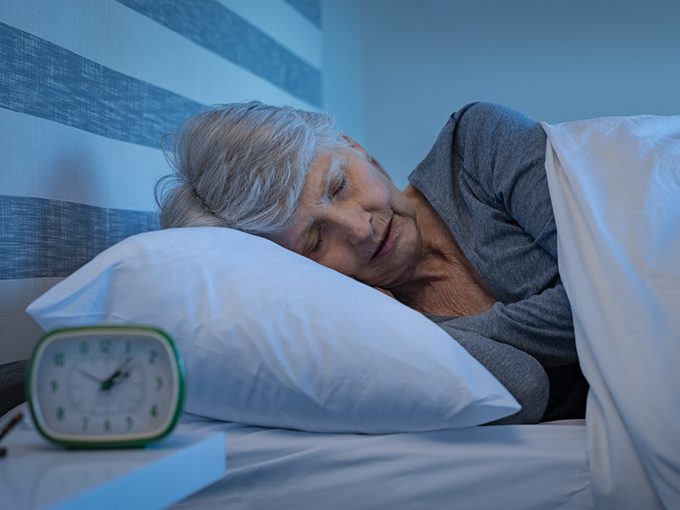Getting a Good Night’s Sleep: 5 Tips for Caregivers
Rest is key for you and the loved one you’re caring for. Here’s how you can both get more of it.

The world always seems a little brighter after a good sleep. And as any caregiver knows, you’re no good to anyone if you’re exhausted. Luckily, there are steps you can take so that you sleep longer and more deeply. They may even work to reduce middle-of-the-night wakeups for your loved one. Find one (or many!) that will work for you.
1. Skip food and drinks that make it hard to sleep.
Everyone’s different! Some people like to abstain from drinks in the few hours before bed. Others know they absolutely need a cup of tea and slice of toast to sleep well. But generally, it’s a good idea for caregivers and their loved ones to follow these tips.
- After the early afternoon, stay away from food and drinks—think coffee, tea, soda and chocolate—that contain caffeine.
- Limit alcohol as it may disturb sleep.
- Avoid large meals too close to bedtime.

2. Choose the right incontinence products.
Your loved one may need a little extra help staying comfortable and dry through the night. That’s where stretchy briefs with an absorption zone to wick away moisture can help. Try TENA PROskin Stretch NightTM briefs, which have a stretchy, stay-in-place fit and maximum absorption, even when your loved one is lying down. A few extra features include the ConfioAir® 100% breathable technology that help maintain skin’s natural moisture balance and Odor Control Technology that locks in liquid to help reduce odour.
3. Create a consistent sleep schedule.
Our bodies love routine. If you can get into a daily rhythm where you wake up and go to sleep at the same time—even on weekends—you’ll be more likely to sleep well when you hop into bed. The same holds true for your loved one. If you help them set a schedule, they’ll be more likely to get a good night’s rest more often. You can also do rituals before bed that indicate to your mind that it’s time to rest. That might mean listening to soft music, changing into fresh pajamas or applying lotion to your face and hands—or helping your loved one do the same.

4. Set up sleep areas that are optimized for catching zzzs.
Light and temperature can have an effect on how easily you and your loved one fall asleep—and whether or not you stay asleep.
- Keep sleep zones nice and dark by putting up blackout drapes, turning off TVs and removing nightlights, illuminated clocks or other distracting items—unless you need them for safety reasons.
- Set the thermostat at a comfortable temperature for sleeping. For most people, that’s around 18 degrees Celsius.

5. Take safety precautions to set your mind at ease.
If you’re prone to lying awake and worrying, there are a few steps you can take to allow your mind to relax—and keep your loved one safer.
- Make sure you have smoke and carbon monoxide alarms on each floor.
- Keep all emergency phone numbers in one easy-to-access place.
- Lock doors and windows before bed and, if necessary, place gates across stairs.
- Remove floor obstacles like furniture or area rugs that could be a tripping hazard in the dark.
Being a caregiver isn’t easy, but the right tools used at the right time can make everything a little less complicated. For more information about TENA’s range of intimate products including absorbent briefs, cleansing cream, wipes and barrier cream (plus plenty of tips for caregivers!), visit tenacaregiver.ca.




